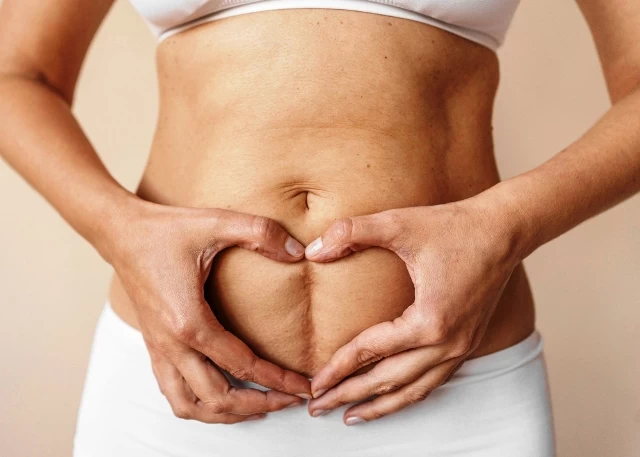
Lipedema and Nutrition
- Lipedema and Nutrition
- What is Lipedema?
- Nutrition in the Treatment of Lipedema
What is Lipedema?
Lipedema is a chronic condition that is particularly common in women. It involves abnormal accumulation of fat in specific areas of the body. Lipedema typically affects the hips, thighs, knees, and ankles, where enlarged fat cells accumulate. This condition results in a significant asymmetry between the upper and lower parts of the body.
Individuals with lipedema often experience fat accumulation even if they are not significantly overweight. While the body shape remains unchanged, there is a buildup of coarse, hard, and painful fat deposits beneath the skin in the affected areas. Lipedema can be influenced by genetic factors and may be associated with hormonal changes. Symptoms can become more pronounced during adolescence or periods of hormonal fluctuations.
Lipedema is generally a progressive condition. Excessive fat accumulation can impede lymph drainage and disrupt the functioning of the lymphatic system. This can lead to increased swelling, edema, and pain. Lipedema can also have psychological effects and negatively impact an individual's quality of life. Problems such as low self-esteem and depression, particularly related to physical appearance, are commonly observed.
Nutrition in the Treatment of Lipedema
Nutrition plays a significant role in the treatment of lipedema. Proper nutrition can help control symptoms and improve quality of life. Here are some important points regarding nutrition for individuals with lipedema:
- Follow a Balanced Diet: A balanced diet means including all food groups and providing the body with all the necessary nutrients. Create a nutrition plan that is rich in protein, carbohydrates, fats, fiber, vitamins, and minerals. Protein can help strengthen muscles and support healing.
- Opt for Anti-inflammatory Foods: Lipedema often involves inflammation. Consuming anti-inflammatory foods can help reduce inflammation. For example, foods rich in omega-3 fatty acids such as salmon, olive oil, avocado, leafy green vegetables, and walnuts can help reduce inflammation.
- Pay Attention to Water Intake: Sufficient water intake supports tissue health and improves lymphatic drainage. As individuals with lipedema may experience issues with the lymphatic system, adequate hydration is important. Aim to drink at least 8-10 glasses of water per day.
- Limit Salt Intake: Salt can cause fluid retention and increase swelling. It is important for individuals with lipedema to limit their salt intake. Avoid processed foods, ready-made sauces, and salty snacks. Cook your meals without adding salt and use herbs and spices for flavoring instead.
- Avoid Sugar and Refined Carbohydrates: Foods containing high amounts of sugar and refined carbohydrates can cause rapid spikes in blood sugar levels and increase insulin resistance. This can affect the fat storage process. Avoid refined sugar, white bread, sugary drinks, and instead, opt for whole grains, fruits, and natural sweeteners.
- Consume High-Fiber Foods: Fiber-rich foods improve digestion and regulate bowel movements, facilitating the elimination of toxins from the body. Include fiber-rich foods such as whole grains, vegetables, fruits, and legumes in your diet.
- Practice Portion Control: Portion control helps balance energy intake. Weight control is important for individuals with lipedema. Serve your meals on smaller plates to control portion sizes. Develop the habit of eating slowly and stop when you feel full to avoid overeating.
- Engage in Exercise: Exercise is as important as nutrition in the treatment of lipedema. Regular exercise helps strengthen muscles and improve circulation. Combining strength training and cardiovascular exercises can assist in managing lipedema symptoms. However, it is important to consult with an expert regarding exercise selection and intensity.
- Consider a Gluten-Free Diet: Individuals with gluten sensitivity or celiac disease need to follow a gluten-free diet. It is also preferable for individuals with lipedema to adopt a gluten-free diet.
Remember, since every individual has different needs, it is important to work with a dietitian to develop a personalized nutrition plan for individuals with lipedema. By consulting a professional, you can receive a tailored nutrition program and lifestyle recommendations.




